
Understanding Ship Dropping in Modern Logistics
The dropshipping business involving ship dropping, maritime freight forwarding or Ocean freight consolidation is a very important part of the global supply chain management. The logistics practice is concerned with cargo shipment services using ocean vessels, where freight forwarders amalgamate cargo of various shippers and portray them as container loads dropshipping business model.
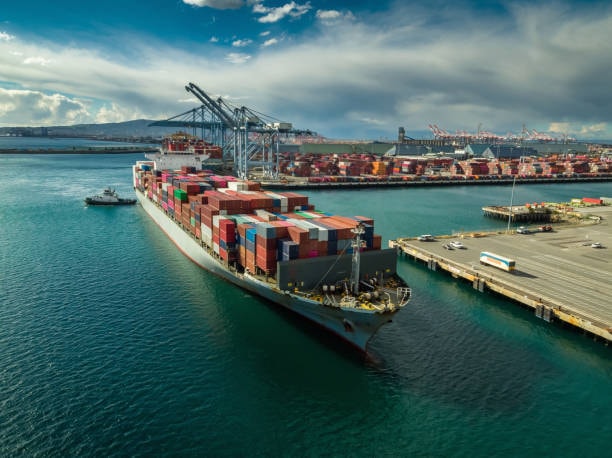
The dropshipping business model has emerged as the globalization of world trade has brought numerous changes in the concept, making it an inevitable service requirement to establish businesses that will find it affordable to ship their products. Ship dropping is an inclusive concept of maritime logistics and covers all the stages of goods transportation, starting with goods gatherings and ending finally with the delivery to their destination point, which makes ship dropping one of the solutions to worldwide trade drop shipping.
The Evolution of Ship Dropping Services
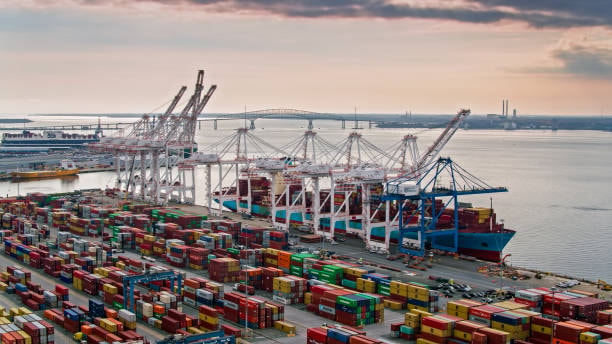
Maritime shipping has been made a reality that has been changing significantly in a span of few decades. Conventional shipping model mandated bulky shipments which necessitated individual businesses to fill up a whole container which was both expensive and inefficient. The benefits of dropshipping can be seen as ship dropping thus emerged as an alternate to solve the problem with several shippers sharing container space and in effect lowering the overall shipping charges drop shipping business.
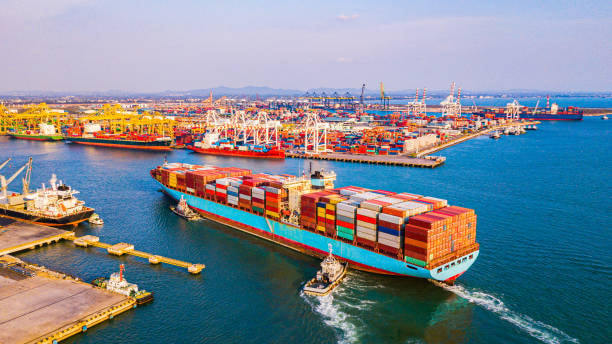
This change can be paralleled with the emergence of containerization in the 1960s and 1970s that normalised the process of handling cargo and made consolidation services more feasible. Ship dropping services are nowadays integrated with high technology network, real-time path tracking and even complex logistics management systems online store.
Key Components of Ship Dropping Operations
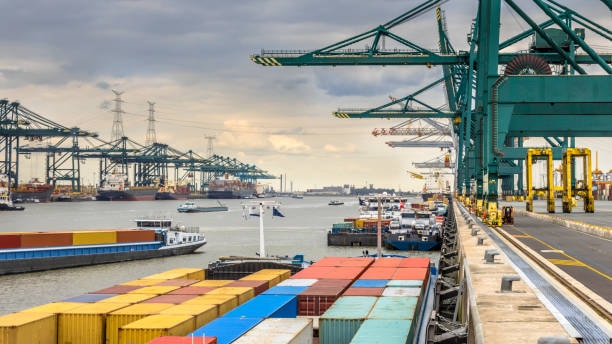
Ship dropping operations comprise a number of vital elements, which interact to guarantee effective cargo transfer. These can be cargo pick-up at various points of origin, consolidation at any key ports, handling of documents, coordinating of customs clearance, and a final delivery dropshipping suppliers.
The process is a rigorous activity that involves the planning and coordination of different parties comprising shippers, freight forwarders, shipping line, port authority, as well as the customs. All the parts should be fully operational and well coordinated to uphold the integrity and productivity of the whole shipping drop shipping supplier.
How Ship Dropping Differs from Traditional Shipping
The dropshipping process contrasts with the conventional full container load (FCL) transportation, when a single shipper occupies a whole container, the idea of ship dropping is based on less than container load (LCL) strategies. This will enable several shippers to pool together container space and international shipping will be more reachable and cost effective to the smaller businesses dropshipping suppliers.
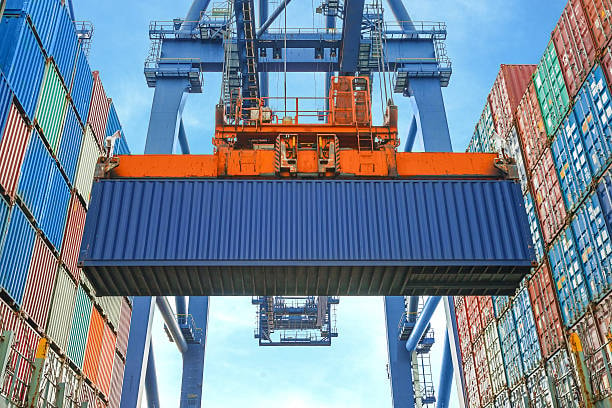
Ship dropping tends to be less binding on minimum volume requirements and lead time flexibility and allows both small and large quantity shipments a faster entrance into the market than traditional shipping usually does with its frequent requirement on volume commitments and lengthy lead times being the norm online business. This is one of the reasons why ship dropping is especially useful to e-commerce companies, as well as small and medium sized companies.
The Role of Freight Forwarders in Ship Dropping
Freights forwarders are some of the key players in ship dropping activities as they are the relationship between shippers and carriers. They also organize the whole shipping process, the initial picking up of cargo to the final delivery making sure that the rules are followed as well as all documentation is taken care off drop shippers.

Professional freight forwarders offer experience in international trade laws, customs formalities and efficiency of logistics. They work in peace with various shipping lines and will be able to cut a decent rate besides assisting value added services like cargo insurance and tracking dropshipping supplier.
Benefits of Ship Dropping for International Trade
There are many benefits attached to the ship dropping to businesses involved in international trade customer orders. The first advantage is cost savings, since shared container capacity greatly reduces a per-unit shipping rate as compared to FCL imports. The cost-effectiveness allows dropshipping companies, especially smaller ones, to venture into world markets that were only accessible to the multinationals.
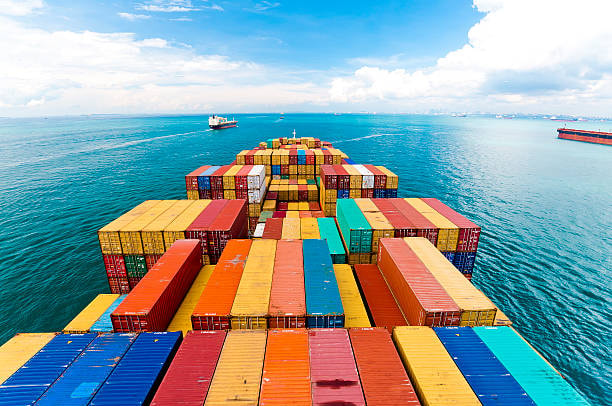
There are also other advantages to the article such as the savings on inventory holding cost, able to enter the market quicker, better management of the cash flow, and ability to tap expertise in professional logistics dropshipping legal. These advantages, including potential profit margin improvements, together make ship dropping a good choice of businesses aiming to adopt efficient international shipping solutions dropshipping model.
Ship Dropping vs. Traditional Container Shipping
The main contrast between ship dropping and container shipping when it was not so lies in cargo consolidation and cost structure. Using traditional FCL shipping providers, the shippers are supposed to use the entire space of the container, something that is not possible when using ship dropping that gives the option to use partial space in containers via consolidation services drop ship business model.
These methods differ considerably with regard to cost implications. FCL shipping can potentially give a cheaper cost per unit on large consignments but they have the condition of very high amounts of shipment. Ship dropping offers affordable services on smaller loads with reasonable service delivery time and quality wholesale price.
Understanding Maritime Freight Consolidation
Ship dropping services, which are supplied in the form of maritime freight consolidation, are built on the strategic merge of several shipments in one container. This is a planning intensive process that will maximize the use of containers at all times with no compromise in cargo and timely delivery internet connection.
Cargo sorting, good packaging, coordination of documentation, and custom compliance are some of the consolidation services. Advanced systems are utilized by professional consolidators to trace their individual shipments within a consolidated container and do this accurately so as to satisfy their customers.
Documentation Requirements for Ship Dropping
In the context of engaging a third party supplier, there must be detailed documentation in ship dropping operations in order to make operations continuous and to comply with the regulations applicable. The documents required are commercial invoices, packing lists, bills of loading, certificates of origin, permits or licenses required.
Through effective handling of documentation, delays and other expenses related to customs problems will be avoided. Skillful freight forwarders are also familiar with documentation requirements in various nations and are able to send shippers through thickets of regulations.
Customs Clearance in Ship Dropping Operations
Customs clearance is one of the most important steps of ship dropping operations, and it must take into account the adherence to all provisions with the help of qualifying documentation. The freight forwarders usually undergo the Customs process so that all the requirements are fulfilled and issues are addressed before they occur.
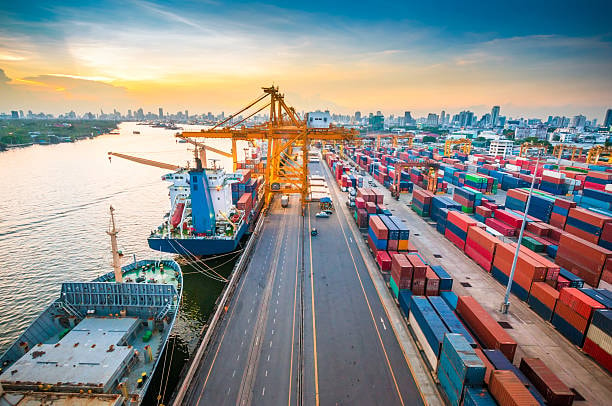
Customs clearance process entails the calculation of duties, tariff classification and satisfying import/export regulations. The custom processes are handled professionally to reduce the delays and allow shipments to arrive at their destination during the right time.
Cost Factors in Ship Dropping Services
The cost of the services such as that of ship dropping is determined by various factors which include volumes of the shipment being carried, the destination, the level of service required, and other services required. The knowledge about these aspects will assist companies in their shipping approach.
The main elements of cost involved are fret maritime costs, consolidation costs, documentation charges, custom clearance charges and destination handling costs. Other optional services like cargo insurance, special handling, and expedited processing are optional, and they may be charged at an extra cost, but they are worth the money.
Choosing the Right Ship Dropping Service Provider
The choice of a suitable ship dropping service provider is a process that demands close attention to many factors. Other important factors are the availability of service, reliability, the cost and competitive advantage, the technological capacity, and the customer service.
Quality suppliers have good connection to shipping lines, are transparent about charges and do extensive tracking. They must also be shown to have an expertise of dealing with certain type of cargo and destination requirements that meet your business needs.
Technology Integration in Modern Ship Dropping
The current ship dropping services are more dependent on high-tech to improve the level of efficiency and customer service. It allows maintaining the monitoring of the process in real time, automatic recording, and communication with all participants of the delivery process.
Technology integration covers things like electronic data interchange (EDI) systems, cargo tracking systems, automated customs clearing systems as well as shipment management mobile applications. The technological innovations enhance precision, speed up the process and lead to better customer experience.
Common Challenges in Ship Dropping Operations

Ship dropping is an operation that has a number of challenges that may affect the quality of services and its efficiency. Among the typical problems are the limitations of capacity during rush periods, mistakes in documentation, delays on the customs border, and the inability to coordinate the activities of several sides.
Ship dropping operations can also be disrupted due to weather conditions, a congestion at the port, and change in the regulations. Skilled service providers will have contingency plans as well as flexible operations to reduce effect of the problems on customer shipments.
Best Practices for Successful Ship Dropping
The best practices ensure that the ship dropping operation becomes better successful and the overall shipping becomes more efficient. Among these practices are making correct documentation preparation, correct packaging of the cargo, booking in advance on the busy season and good communication with the service providers.
Other best practices include adherence to customs needs, proper insurance cover and provision of connections with sound freight forwarders. Such activities assist in the running of operations and limit disruptions that might take place.
Ship Dropping for Small and Medium Enterprises
Ship dropping services are ideal solutions to small and medium enterprises (SMEs) in particular because they can use the services to tap into international markets without making huge commitments on volumes. Through community use of container space, SMEs can realize cost-efficient International deliveries whilst still using competitive delivery times.
Ship dropping helps the SMEs to test the new markets with minimal risk, fast response to the customer needs and effective competition to their bigger competitors. This has opened up the global trade making it democratic and opened up globalisation to any business size.
Environmental Impact of Ship Dropping Services
Efficiency in use of container and availability of lesser containers at partial usage in marine transportation is environmentally-friendly since it relates to ship dropping services. The consolidation services enhance general efficiency of shipping and carbon footprints emission per unit.
On the environmental front, there is less fuel use per unit that is shipped, efficient use of vessel capacity, and port congestion. Carbon footprint reporting has become possible with several ship droppers providers who also engage in environmental sustainability activities.
Regional Variations in Ship Dropping Practices
Regulations, performances of infrastructures and market dynamics make ship dropping practices different in various regions. Knowledge of such differences enables companies to maximize their shipping plans as per certain trade routes and destinations.
As regional factors, one may consider customs procedures, documentation needed, availability of ports and inland transportation, and ways local businesses run. The advice of long-time freight forwarders is useful when it comes to understanding regional differences, which leads to making the right local demands.
Ship Dropping and E-commerce Logistics
e-Commmerce has led to a massive demand in the ship dropping services since the online retailers need a freight flexible service to operate effectively even in serving international customers. Ship dropping allows e-commerce business to stay at competitive shipping prices and simultaneously provide international shipping services.
Small package handling, order consolidation, customs compliance of consumer goods, and fulfillment platforms are the e-commerce specifications. Speciality ship dropping services are services that present specific solutions implemented to suit the needs of e-commerce logistics.
Quality Control in Ship Dropping Operations
Quality control during ship dropping operations is needed to secure the integrity of the cargo and its clients. Quality control should also include considerations of shipping fees, covering appropriate cargo handling procedures, safe packaging requirements, temperature management in case of sensitive goods and no-damage-in-transit procedures.
Quality assurance systems entail frequent audits, monitoring performances, analyzing customer feedbacks and continuous improvement. Well-known service providers undergo routine testing, meeting the demands of the ISO standards and adopting active quality management.
Insurance Considerations for Ship Dropping
Another strategy of the ship dropping operation, which makes cargo insurance important, is that shippers can be shielded against losses that could be incurred during the movement of goods. Businesses can benefit by understanding the risk management strategies about insurance covers and types of insurance covers.
When dealing with insurance, the value of cargo, insurance scope, the level of deductables, and procedures of claims are taken into consideration. Having professionals in the freight forwarding business is capable of advising the customer about suitable insurance coverage as well as enabling the customer to have a smooth claim processing incase of an eventuality.
Ship Dropping Pricing Strategies
Ship dropping pricing programs differ by various companies and are defined by numerous configurations such as quantities vows, service layers, and destination needs. When businesses are aware of their pricing structures, they will find it easier to minimize the expense of shipping as well as managing their budget wisely.
The typical pricing frameworks are weight-based price charges, volume-based prices, destination-based charge, and value-added services charges. Regular shippers receive an extra cost saving opportunity by some providers offering volume discounts or contract rates to regular shippers.
Technology Trends Shaping Ship Dropping
The ship dropping services are being transformed by emerging new trends in technology, which provide an efficient service and pleasure to customers. Suggested trends are artificial intelligence which is used to optimize routes, blockchain to secure documentation and Internet of Things (IoT) devices that provide real-time tracking of cargo.
With advanced analytics, the demand can be more successfully predicted and capacities planned, and in mention of automation, processes which cannot be done by automation can be minimized and more prone to be accurate. Such technological innovations are revolutionizing old-fashioned ship dropping services to advanced informed logistic supply services.
Regulatory Compliance in Ship Dropping
Regulatory compliance has been a decisive factor in ship dropping operations and hence a good knowledge of international trade regulations, customs requirements, and security requirements is a must. Penalties, extra expenses, and delays can also follow non-compliance.
Indicators of compliance are ensuring that there is proper cargo classification, documentation or proceeding through security screening process and ensuring that international trade compliance is upgraded. The professional freight forwarders are at the same time experts of the regulatory requirements and can assist in ensuring that the shipping process is vigilantly observed.
Ship Dropping Route Optimization
The route used in the ship dropping is an important aspect of the efficiency of ship dropping as it influences the transit time and cost of transportation and reliability. Optimal routing is done that takes into account the schedule of ships, the availability of ports, the time in custom clearance, and the availability of modes of transport on land.
The more sophisticated routing algorithms take into consideration several factors in order to determine optimal shipping routes that apply to particular needs. This optimization saves money and increases predictability of delivery and customer satisfaction in general.
Container Consolidation Strategies
The most effective strategies to container consolidation involve optimum use of container space keeping the integrity and delivery of cargo intact. The functions of consolidation planning are the assessment of compatibility of cargo and optimization of weight distribution together with efficient packing methods.
Sophisticated equipment and skill cuts down on the loading of containers to provide maximum use of space whilst at the same time avoiding damage of the goods. Such strategies will create efficiency of costs and sustainability of the environment.
Ship Dropping Network Management
Successful network management brings together various elements of ship dropping business i.e origin collection, consolidation centers, shipping lines and destination delivery services. Proper network management helps to avoid difficulties and maintain high quality of services.
Network management deals with partner relations, capacity breading, performance monitoring and contingency planning. The winning providers have strong networks capable of adapting with the changes in the market statistics and needs of customers.
Future Trends in Ship Dropping Services
New technology, evolving trade trends and customer demands will determine the next generation of the ship dropping services. Among the main trends, one could note automation growth, strengthened visibility, and the emphasis on sustainability, as well as service customization.
This is in addition to the emerging technologies like autonomous vessels, advanced analytics, and smart containers that are set to change the processes of ship dropping. The touted developments have the prospect of accomplishing greater efficiency, decreased expenditure, and added customer experiences in international shipping.
Risk Management in Ship Dropping
The risk management helps to shield its operations against different disruptions and losses that ship dropping will suffer. Weather and congestion in the ports, customs problems, accident or damage to cargo, and carrier default are some cases of risk.
Risk management is an efficient process and requires risk analysis, risk prevention, alternative planning and insurance. The professional service providers have their systems of risk management that reduces the possible effects of the customer shipments.
Performance Metrics for Ship Dropping
The main measures of performance assist in rating the quality of ship dropping services and ways of enhancing it. These significant metrics are transit time reliability, document accuracy, the level of damage, customer satisfaction rating, and the cost competitiveness.
Performance should be monitored regularly so that an effective improvement of the performance can be achieved and the standards of the service can be kept high. Major resellers place their metrics dashboards in order to monitor performance and share results with customers in a matter-of-course way.
Customer Service Excellence in Ship Dropping
Many competitive markets are identified by exceptional customer service as a key distinction of winning ship dropping companies. Customer service excellence relay on active communication, issue fixing, openness and acting on the needs of its customers.
Examples of quality customer service entail frequent shipping information, immediate feedback on inquiries, convenience of channels to the customers, and special consideration of customer needs. These service components develop trust and create long-term bond with customers.
Industry Standards and Certifications
Regulations and certification in the industry guarantee conformity to the set levels of quality and security in ship dropping services. Relevant certifications are ISO quality management standards, security certifications and industry-specific accreditations.
Adherence to the setting industry standards proves that the work providers are credible, and they are dedicated to providing good service. These certifications give the customers the assurance regarding the quality of services and the capabilities to comply with the regulations.
Ship Dropping Market Analysis
The international ship dropping industry is still expanding as international trade as well as e-commerce is rising and there has been a demand of affordable shipping options in the world. Market analysis shows the trends in the demand of service, pricing trends and competition.
Market factors are the growth of trade volume, limit of shipping capacity, fluctuation of fuel prices and change of regulations. Being aware of market trends is beneficial since it gives the business a scope to know whether or not a certain shipping strategy and service provider is advisable.
Integration with Supply Chain Management
Ship dropping services are implemented perfectly together with the overall supply chain management approach that contributes to the just-in-time inventory policies, demand responsiveness and cost optimization planning. Such integration increases the general efficiency of the supply chain.
Supply chain integration entails integration with procurement, inventory management, distribution and customer services. Well integrated businesses give synergies that enhance the general performance of the business and customer satisfaction.
Economic Impact of Ship Dropping
Ship dropping services play important roles in the economic growth of the globe through international trade which facilitates and opening up of business venture to other markets. Economic growth, creation of work, and competitive advantage are ensured by such services.
The economic gains will be in the form of lowering trade barriers, market accessibility, raising the competitiveness of firms, and raising the levels of trade. The services offered by the ship dropping industries give business enterprises to be involved in the international value chain and also to capture the foreign opportunities.
Crisis Management in Ship Dropping Operations
Proper crisis management provides that ship dropping operations are not shut down because of interruption of natural disasters, strike by workers, or geopolitical interferences. Risk, contingency operations, and communication plans are aspects of crisis management planning.
Among the crisis responsive capabilities, one may highlight alternative routing, backup service providers, emergency services and customer communication strategies. Effective crisis management reduces the degree of disturbance and ensures the loyalty of customers even in out 20 crisis moments.
Partnership Strategies in Ship Dropping
Strategic alliances improve the capacity of ship dropping services and the market opportunities. Shipping lines, customs brokers, truckers, operators of the warehouses, and technology providers may be partners.
The effective partnering strategies come up with value added to complementary skills, diversification of services, growth in efficiency and increased customer care. Through these relationships, providers are able to provide complete solutions, but without the need to be rigid as regards to their operations.
Digital Transformation in Ship Dropping
Digital transformation is changing how operations work in ship dropping by means of automatizing functions, the analysis of data, and connectivity. The digital initiatives enhance efficiency in operations, customer experience, and the competitiveness of an organization.
Examples of digital transformation tools are electronic systems of documentation, automatic reservation systems, real-time monitoring, and forecasting. The technologies here allow operations to be used more efficiently and customer services to be provided in a better manner.
Company Background
Shenzhen Guanwutong International Freight Forwarding Co., Ltd. (GWT Worldwide) is an epitome of professional ship dropping service provider as an integrative logistic company providing international services in the field of freight forwarding and supply chain management. Having the experience in cross-border e-commerce logistics and being the strong player in the Chinese market and global market, GWT Worldwide provides high-quality, affordable, and customized integrative logistic services such as fret aérien, ocean freight, China-Europe railway transportation, international express services, customs declaration, warehousing, and e-commerce Amazon FBA freight services. Efficiency, transparency, and customer satisfaction, as well as the high level of logistics technology and a wide web of reliable partners, guarantee the safety of transport of cargo, ensure its rapid transportation, and ensure that it is carried out at the level of regulatory compliance, allowing GWT Worldwide to become an authoritative logistics partner of business organizations of any size as they require an uninterrupted flow of international trade.
Conclusion
Ship dropping is one of the essential elements of contemporary international logistics, offering affordable and effective shipping services to companies of any range. It is a wholistic service of chain in the maritime freight forwarding which integrates the consolidation services, expertise and advanced technology to provide reliable international shipping capabilities. A drop shipper will benefit from knowledge of ship dropping principles and advantages, as well as best practices, to help businesses make informed choices of which ship dropping strategy and partners to use in their global shipping.
There are still influences used to form the evolution of the ship dropping services, and they are associated with the technological development, trade pattern shifts and the increased needs in the sustainability of the logistics. The demand for ship dropping services will thus persist as the international trade and e-commerce growth pace continues to increase allowing businesses to sustain growth in the highly competitive market environment.
